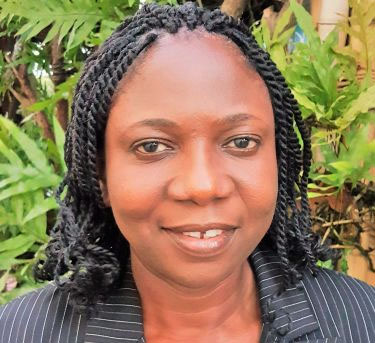Dr Olufunke Cofie
A stakeholder’s meeting has met to dialogue on the issue of migration as a major driver and consequence of social change in relation to livelihood opportunities, employment and education in Ghana.
The meeting dubbed “Migration and Social Transformation in Ghana” initiated by the International Water Management Institute (IWMI) and the University of Ghana also examined how migration to the southern part of Ghana has had an impact on agriculture and water management.
It was also to discuss how migration has resulted in inequalities in access to labour among the remaining population, especially through the lens of ‘feminization’ in agriculture.
Dr Olufunke Cofie, Principal Researcher and Head of IWMI West Africa, said the deliberation resulting from the dialogue would help enrich the migration and social transformation programme being pursued by her organization and subsequently, other national policies.
Dr Liza Debevec, Coordinator of the Migration, Agriculture and Resilience Initiative for Sustainability (MARIS) Network IWMI, said migration was one of the most challenging policy issues facing the world and that the UNFPA had estimated that 244 million people lived outside their country of birth worldwide.
“But we are worried about what happens to the migrants in their countries of abode. IWMI is trying to understand the impact of migration on the source countries as well as those they leave at home, especially women and the elderly.
“We want to know the impact of migration” on livelihoods like agriculture, climate change and agrarian, and migration and inequalities,” Dr Everisto Mapedza, Senior Researcher, Social and Institutional Scientist of IWMI, stated.
Professor Joseph Teye, Director of the Centre for Migration Studies, University of Ghana, said the phenomenon of migration has many positive sides that needed to be tapped into for socio-economic development of countries.
Prof Teye said despite the challenges that confronted countries due to migration, many of the migrants continued to provide remittances to their families back home to improve livelihoods, diversification of income sources, enhancing food security and human capital development.
He said rural-urban migration in Ghana was high because of the factors of inequalities in social infrastructure and other amenities while rural-rural migration was also engaged in for agriculture purposes.
He said it was unfortunate that most African governments do not have clear policies to protect migrants within their countries and therefore urged all governments to dialogue and formulate proper policies to cover internal migrants in Africa.
Dr Alan Nicol, Strategic Programme Leader, IWMI, said governments could, for instance, look at migrants who especially stayed in slums, and explored and understood how they were working to contribute towards economies.
Representatives from both state and non-state actors and other civil society and non-governmental groups like the Ministry of Environment, Ministry of Food and Agriculture, CSIR, GIZ, University of Development Studies and University of Ghana, participated in the dialogue.
By Jamila Akweley Okertrchiri


